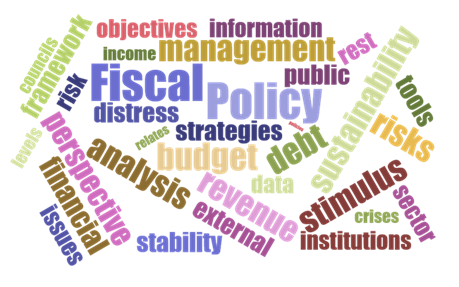Tax Revenue Forecasting and Analysis (TRFA)
 This is an introductory course designed for public sector staff who are interested in learning about the theory and practice of revenue forecasting and tax policy analysis. The course offers hands-on learning that will help staff build foundational knowledge on the different quantitative models and techniques that can be used to forecast revenues and undertake tax policy analysis, while also exploring related issues such as the features of a sound institutional framework and the key principles of tax policymaking. The course does not presume the audience is familiar with forecasting concepts but does require a basic understanding of statistical concepts.
This is an introductory course designed for public sector staff who are interested in learning about the theory and practice of revenue forecasting and tax policy analysis. The course offers hands-on learning that will help staff build foundational knowledge on the different quantitative models and techniques that can be used to forecast revenues and undertake tax policy analysis, while also exploring related issues such as the features of a sound institutional framework and the key principles of tax policymaking. The course does not presume the audience is familiar with forecasting concepts but does require a basic understanding of statistical concepts.
Target Audience
Qualifications
Pre-requisites
Course Objectives
The course is intended to be a hands-on practical workshop that enables staff to:
- Analyze fundamental principles and trends in tax revenue analysis.
- Explain the key features of an effective institutional framework for revenue forecasting.
- Identify data requirements and recognize potential data issues.
- Recognize the strengths and limitations of different forecasting methods.
- Use the adequate model(s) to quantify the impact of tax policy changes, including input-output tables and micro-simulation models.
The course will feature an introductory short test to appraise participants' basic knowledge on the forecasting. Throughout the course, participants will undertake practical exercises during each of the different sessions comprising the course. At the end of the course, participants will undertake a final test.
Monetary and Financial Statistics (MFSX)
English | October 15, 2024 - December 17, 2024 | Online Training | Course conducted online
Apply online by November 22, 2024
Nowcasting (NWC)
English | February 17-28, 2025 | In-person Training | New Delhi, India
Apply online by November 22, 2024
Selected Issues in the Regulation of Fintech (SIFR)
English (French, Portuguese) | January 13-17, 2025 | In-person Training | Ebene, Mauritius
Apply online by November 22, 2024
Managing Capital Flows: Macroeconomic Analysis and Policies (MCF)
English | February 10-21, 2025 | In-person Training | Singapore, Singapore
Apply online by November 22, 2024
Building Institutions to Fight Corruption (BIFC)
English (Russian) | March 3-7, 2025 | In-person Training | Vienna, Austria
Apply online by November 24, 2024


